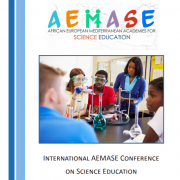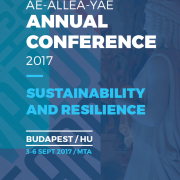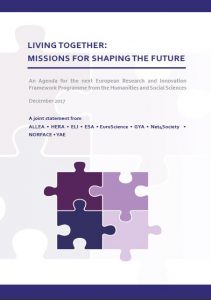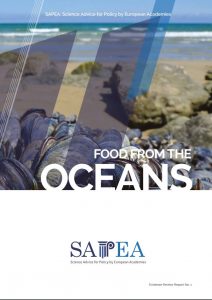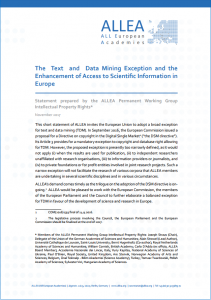Archive for year: 2017
Ethical Aspects of Open Access Workshop on 1 February 2018
The ALLEA Permanent Working Group Science and Ethics organised a policy workshop titled “Ethical Aspects of Open Access: A Windy Road” on 1 February 2018 at the Royal Flemish Academy of Belgium for Science and the Arts.
Workshop Report available here
Please find the presentations of the day below:
Roger Pfister – Open Data in Science: Outcomes of the European Members of ICSU Workshop
László Fésüs – Open Access: The Problem Landscape from an Ethical Perspective
Chris Graf – Editorial Responsibility in the Open Access World: Best Practices
Stephan Lewandowsky – Open Data: Balancing Transparency with Resilience
Michele Garfinkel – Open Access and Assessing Research Performance
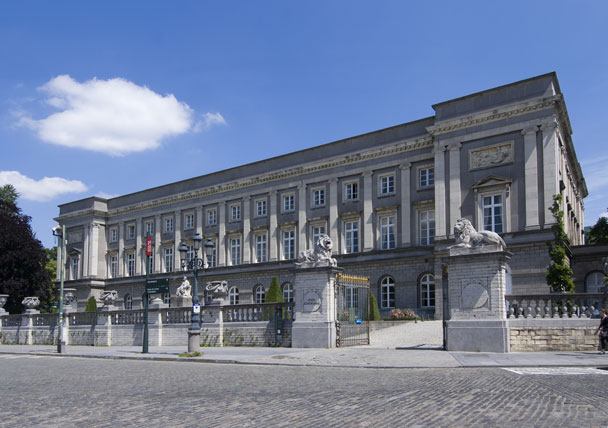
Facilitating access to research is a shared interest of the academic community: Open Access enables researchers to present their results more easily, opens up opportunities for researchers and institutions who cannot afford to subscribe to scientific journals, and allows for an easier use of publications in the classroom. But there are also unintended consequences. In some cases the costs have to be paid by individual researchers or institutions who cannot do so. Furthermore, it has led to an increase of predatory journals, retractions, and fake editors. How are these problems to be dealt with, or rather, how can the opportunities be maximized and the threats minimized? These questions will be addressed at this workshop, which involves eminent experts from different parts of the world and from all relevant sectors involved in or affected by the on-going debate on open access publishing.
Next ALLEA General Assembly: 16-18 May 2018 in Sofia
ALLEA will hold its 19th General Assembly at the Bulgarian Academy of Sciences (BAS) in Sofia on 16-18 May 2018. The event comprises a scientific symposium on “Science in Times of Challenged Trust and Expertise”, as well as a science-policy symposium co-organised by the European academies’ project SAPEA.
Visit General Assembly Website
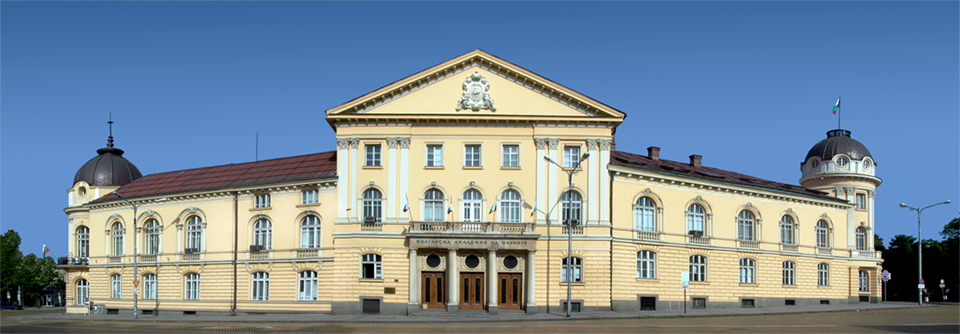
As in previous years, the event is held in conjunction with ALLEA’s annual business meeting (closed), which brings together delegates from the 59 ALLEA Member Academies.
On 16 May 2018, the event will feature the 2018 award ceremony of the All European Academies Madame de Staël Prize for Cultural Values, which will be rounded off by a festive evening reception in the Archaeological Museum of the Bulgarian Academy of Sciences.
Registration to the event will open in the beginning of 2018.
Joint statement proposes transdisciplinary ‘missions’ for Framework Programme 9
ALLEA, together with academic organisations representing the Social Sciences and Humanities (SSH) in Europe, publishes the joint statement “Living Together: Missions for Shaping the Future” . The signatories call for more inter- and transdisciplinarity and a conscientious framing of ‘missions’ in the future EU Research and Innovation Framework Programme 9 (FP9), putting forward suggestions that take account of social, cultural, legal and ethical challenges ahead.
The statement responds to a call by the High-Level Group on maximising the impact of EU Research & Innovation Programmes, the so called “Lamy-Group”, to “adopt a mission-oriented, impact-focused approach to address global challenges”.
The signatories critically reflect on the type and scope of missions needed to adequately respond to societal challenges Europe faces in the years and decades to come. According to the statement, “these challenges require concerted efforts within and outside Europe, cutting across borders, cultures, languages, disciplines, sectors and institutions. However, we believe that the concept of ‘missions’ deserves to be discussed and developed further.” Mission-oriented research should thus:
(1) be “transformative in that it generates new knowledge and understanding”,
(2) acknowledge that “innovation is more than technology”,
(3) not be too constrained on specific end-products and “a premature identification of indicators of success or failure”,
(4) be open to researchers to come up with projects of all sizes to produce innovative ideas (bottom-up approach),
(5) “integrate all countries and regions in order to counter the research and innovation divide in the European Research Area” and maintain openness towards collaboration with non-EU countries.
The statement proposes four exemplary ‘missions’ targeting social and cultural transformation:
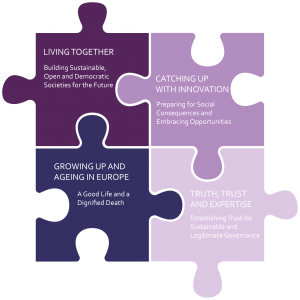
Signatories
Initiated by ALLEA’s and HERA’s (Humanities in the European Research Area) respective working groups on Framework Programme 9, this statement was jointly prepared and signed by the European organisations:
- ALLEA (All European Academies)
- HERA (Humanities in the European Research Area)
- ELI (European Law Institute)
- ESA (European Sociological Association)
- EuroScience
- Global Young Academy
- Net4Society
- Norface (New Opportunities for Research Funding Agency Cooperation in Europe)
- YAE (Young Academy of Europe)
SAPEA provides evidence for the European Commission on Food from the Oceans
SAPEA (Science Advice for Policy by European Academies) has published its first Evidence Review Report titled Food from the Oceans, which examines the question of how the ocean can help satisfy the global demand for food.
As an integral part of the Scientific Advice Mechanism (SAM), SAPEA was asked to produce this Evidence Review Report to underpin the Scientific Opinion of the High Level Group (HLG), in response to a request from Commissioner Vella (DG MARE). The request asked for advice on the question: “How can more food and biomass be obtained from the oceans in a way that does not deprive future generations of their benefits?”
The Evidence Review Report warns that in our extraction of food from the oceans, ‘business as usual’ is not sustainable from social, economic and environmental viewpoints. The report suggests a number of options, which inform the recommendations of the HLG Scientific Opinion. It states that the only way to obtain significantly more food and biomass sustainably from the ocean is to harvest seafood that on average is from a lower trophic level (lower in the food chain) than we currently harvest.
To produce Food from the Oceans, SAPEA worked with academies across Europe and the European Academy Networks to bring together experts in a range of disciplines. The experts formed working groups which were chaired by Professor Poul Holm (Trinity College Dublin) and Professor Dag Aksnes (University of Bergen). Academia Europaea led on this topic.
Carlos Moedas, Commissioner for Research, Science and Innovation, said:
“This substantive opinion and comprehensive evidence review shows that the Commission’s Scientific Advice Mechanism is going from strength to strength. I am confident that the value of this opinion will be recognised not just by European policy makers, but also by national governments and all those who care about the future of our oceans.”
Professor Günter Stock, 2017 Chair of the SAPEA board said:
“Interdisciplinarity and world class expertise from across Europe are SAPEA’s core strengths, and this report has successfully incorporated these under the leadership of Academia Europaea. I look forward to SAPEA’s future collaborations with the SAM High Level Group, ensuring that scientific advice is informed by expertise from academies across Europe.”
Professor Sierd Cloetingh, President of Academia Europaea said:
“In Food from the Oceans, we believe we have established an attractive model for future SAPEA projects. I would like to thank the academies across Europe and their experts who have contributed their valuable knowledge to this report. I express my gratitude to everyone involved in making Food from the Oceans a success, ensuring that the Evidence Review Report was delivered on time and to an excellent standard.”
Download the SAPEA Food from the Oceans Evidence Review report
Download the SAM High Level Group Opinion
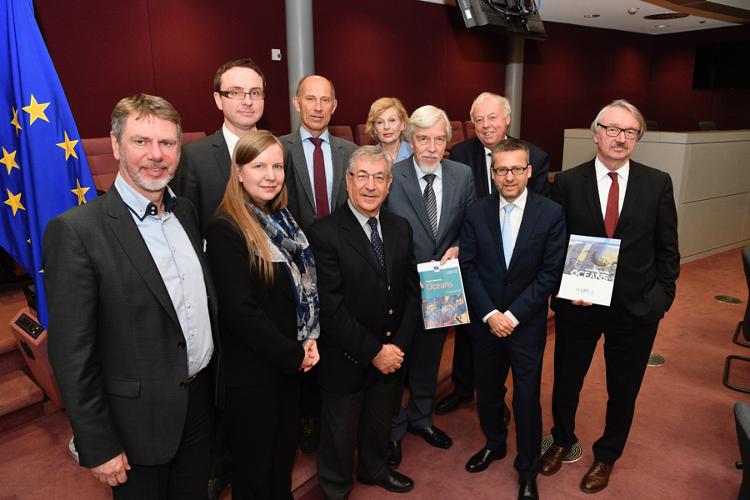
Members of the High-Level Group, SAPEA and European Commissioners Carlos Moedas and Karmenu Vela at the handover of the Scientific Opinion and Evidence Review Report. Credit: European Commission
 The SAPEA project is part of the European Scientific Advice Mechanism and has received funding from the European Union’s Horizon 2020 research and innovation programme under grant agreement No 737432
The SAPEA project is part of the European Scientific Advice Mechanism and has received funding from the European Union’s Horizon 2020 research and innovation programme under grant agreement No 737432
ALLEA publishes statement on “The Text and Data Mining Exception”
The ALLEA Permanent Working Group Intellectual Property Rights calls for a broader exception for Text and Data Mining in the proposed Directive on copyright in the Digital Single Market
ALLEA calls, in a statement published on 15 November 2017, for a broader exception for Text and Data Mining (TDM) in the proposed Directive on copyright in the Digital Single Market. The position, prepared by the ALLEA Permanent Working Group Intellectual Property Rights, responds to a European Commission Directive on copyright in the Digital Single Market, currently under trilogue discussion between the European Council, the European Parliament and the European Commission and which will be voted on by the European Parliament at the end of November.
The paper, titled “The Text and Data Mining Exception and the Enhancement of Access to Scientific Information in Europe”, states that while Article 3 of the Directive provides a mandatory exception to copyright and database right allowing for TDM, the proposed exception is still “too narrowly defined”, according to the expert group. The current proposed legislation would not apply (i) when the results are used for publication, (ii) to independent researchers unaffiliated with research organisations, (iii) to information providers or journalists, and (iv) to private foundations or for-profit entities involved in joint research projects.
“Such a narrow exception will not facilitate the research of various corpora that ALLEA members are undertaking in several scientific disciplines and in various circumstances,” the authors state.
ALLEA, representing 59 academies from more than 40 countries from the Council of Europe region, urges the European Institutions to elaborate a more balanced exception for TDM taking the needs of science and research in Europe better into account. ALLEA is prepared to engage with the European Commission, the members of the European Parliament and the Council to to further elaborate a balanced Directive.
The ALLEA Permanent Working Group Intellectual Property Rights combines decades of highly specialised expertise in the European legal framework for patents or copyrights. Previous ALLEA publications on the topic of open access in Europe include: “Open Science for the 21st century” (2012), “The Enhancement of Open Access to Scientific Publications in Europe” (2013), Supplementary Statement on the Enhancement of Open Access to Scientific Publications in Europe (2015) and Follow-up Statement on Open Access (2015).
New statement on the patentability of inventions involving human embryonic stem cells in Europe
The ALLEA Permanent Working Group Intellectual Property Rights warns that recent scientific progress might pose new legislative challenges concerning the patentability of inventions involving human embryonic stem cells.
ALLEA warns in a statement published today that, in light of recent scientific progress in human embryonic stem cells, parts of the reasoning of a 2014 judgement of the Court of Justice of the European Union (CJEU) “could soon lead to inconsistent and contradictory results” in the field of patentability of inventions involving human embryonic stem cells. Therefore, ALLEA renews its plea for applying the same moral standards that govern research and developments in the area of embryonic stem cells also when it comes to questions of patentability of inventions involving embryonic stem cells.
The statement with the full title “Patentability of Inventions involving Human “Embryonic” Pluripotent Stem Cells in Europe”, is the fourth of a series of statements prepared by the ALLEA Permanent Working Group Intellectual Property Rights addressing the sensitive issue of the patentability of inventions involving human embryonic stem cells since 2011.
The ALLEA expert group reaffirms its previous reasoning and warns about legislative shortcomings hampering the patentability of inventions involving human “embryonic” pluripotent stem cells in light of the recent scientific progress. In 2014, the judgement of the Court of the Justice of the European Union (CJEU) in the International Stem Cell Corporation case (C-364/13) provided clarifications on the term “a human embryo” but at the same time, parts of the reasoning “could soon lead to inconsistent and contradictory results”, the ALLEA statement argues.
In this case, the Court ruled that an unfertilized human egg whose division and further development have been stimulated by parthenogenesis[i] does not constitute a ‘human embryo’ in European legislation (Article 6(2) of the Directive 98/44/EC). However, the Court argued that this interpretation only applies “if, in light of current scientific knowledge,” the unfertilized human egg stimulated by parthenogenesis does not, in itself, have “the inherent capacity of developing into a human being”.
The developing scientific knowledge might soon provide new implications for the patentability of inventions involving human pluripotent stem cells.
ALLEA’s Working Group warns that, following this judgement, the developing scientific knowledge might soon provide new implications for the patentability of inventions involving human pluripotent stem cells. Particularly it indicates that a specific type of organism, parthenotes, which are derived from embryonic stem cells via parthenogenesis, currently lack the “inherent capacity of developing into a human being”. However, this feature might change in the near or distant future as a result of further research in this field. Should this be the case, parthenotes may be treated as having “the inherent capacity to develop into a human being”. As a result of this, “inventions that involve the same type of human pluripotent stem cells will not be patentable anymore”, the expert group points out. Therefore, “it appears unclear what is to be understood under the term ‘inherent capacity’”, the statement concludes.
In light of these developments and to keep up with the most recent scientific progress, ALLEA renews its plea that the same moral standards which control research and development in the area of human embryonic stem cells in Europe should also apply to the control of the patentability of inventions derived from this type of research.
“(…) it is necessary to narrow the notion of an invention to its genuine understanding, i.e. separate it from whatever preceded and whatever follows the invention and is controlled by rules that are in compliance with competent regulations in force and prevailing principles of ethics and morals. Only such an approach, as ALLEA understands the matter, can prevent human pluripotent embryonic stem cells from being in the end equated to an “embryo” whose definition as it stands will develop further depending on the progress of scientific knowledge”, the expert group affirms.
The ALLEA Permanent Working Group Intellectual Property Rights combines decades of highly specialised expertise in the European legal framework for patents or copyrights. The chair of the expert group and lead author of the publication, Joseph Straus, is Professor emeritus of Law at the Universities of Munich and Ljubljana, corresponding member of the Academy of the Lincei and the Slovenian Academy of Sciences and Arts. He was director of the Max Planck Institute for Innovation and Competition, and is one of the world’s most influential scholars in the field of Intellectual Property Rights law.
Previous ALLEA publications on the topic of stem cells research in Europe include:
- Patenting of Inventions Involving Human Embryonic Pluripotent Stem Cells in Europe (2011)
- Patentability of Inventions Involving Human Embryonic Pluripotent Stem Cells in Europe of May 2011 and the Judgment of the Court of European Communities (Grand Chamber) of 18 October 2011 in Case C-34/10 (2012)
- Patentability and Research Funding relating to embryonic Stem Cells (e-SCs) (2013)
[i] Parthenogenesis is “a reproductive strategy that involves development of a female (rarely a male) gamete (sex cell) without fertilization” (Encyclopaedia Britannica).
ALLEA President-elect will be next President of the Swiss Academies of Arts and Sciences
ALLEA President-elect Antonio Loprieno will be the next President of the Swiss Academies of Arts and Sciences. Loprieno, a reputed scholar in Egyptology, Linguistics and Semitic languages, and former rector of the University of Basel, will assume his position in May 2018.
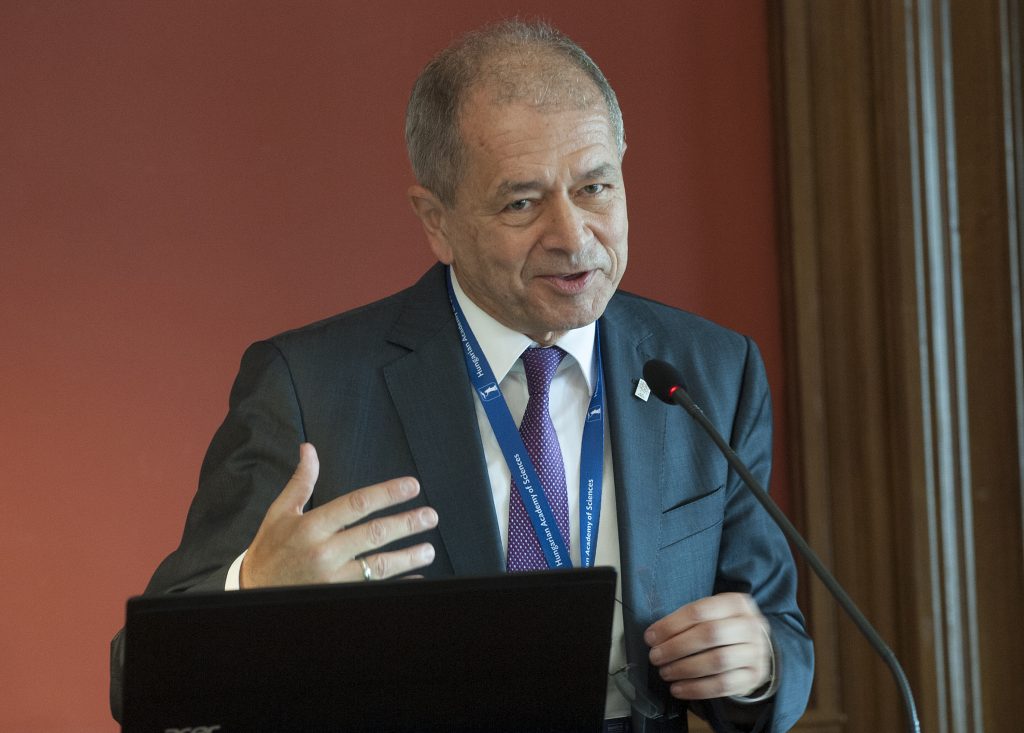
ALLEA President-elect Antonio Loprieno during the ALLEA General Assembly in Budapest on 4 September 2017. Credit: MTA
The electoral commission said that the Swiss Academies have chosen a “highly distinguished President who is both renowned and incredibly dedicated”, according to a press release published by the Swiss Academies of Arts and Sciences.
“I am delighted to be able to serve the Swiss scientific community on both a national and international level, and will do so with real enthusiasm”, said Loprieno in a statement.
Loprieno, born in Bari (Italy) in 1955, was recently elected as the next president of ALLEA in the Budapest General Assembly on 4 September 2017. He will assume his position for the term 2018-2021 in Sofia during the next ALLEA General Assembly in May 2018.
The Swiss Academies of Arts and Sciences, which is a member of ALLEA, is an association of the Swiss Academy of Sciences (SCNAT), the Swiss Academy of Humanities and Social Sciences (SAHS), the Swiss Academy of Medical Sciences (SAMS), and the Swiss Academy of Engineering Sciences (SATW). It further comprises the centre of excellence for technology assessment (TA-SWISS) and Science et Cité as well as other scientific networks.
Read Press Release from the Swiss Academy of Arts and Sciences
New ALLEA Working Group on “Truth, Trust and Expertise”
Is there a crisis of trust in science? How can and should valid knowledge be acquired? How should the complexity and the processes of science be communicated in an era of digital communication? How are different disciplines dealing with these challenges? ALLEA is addressing these and more questions in its newly formed working group, which held its kick-off meeting in London at the British Academy on 18 October 2017.
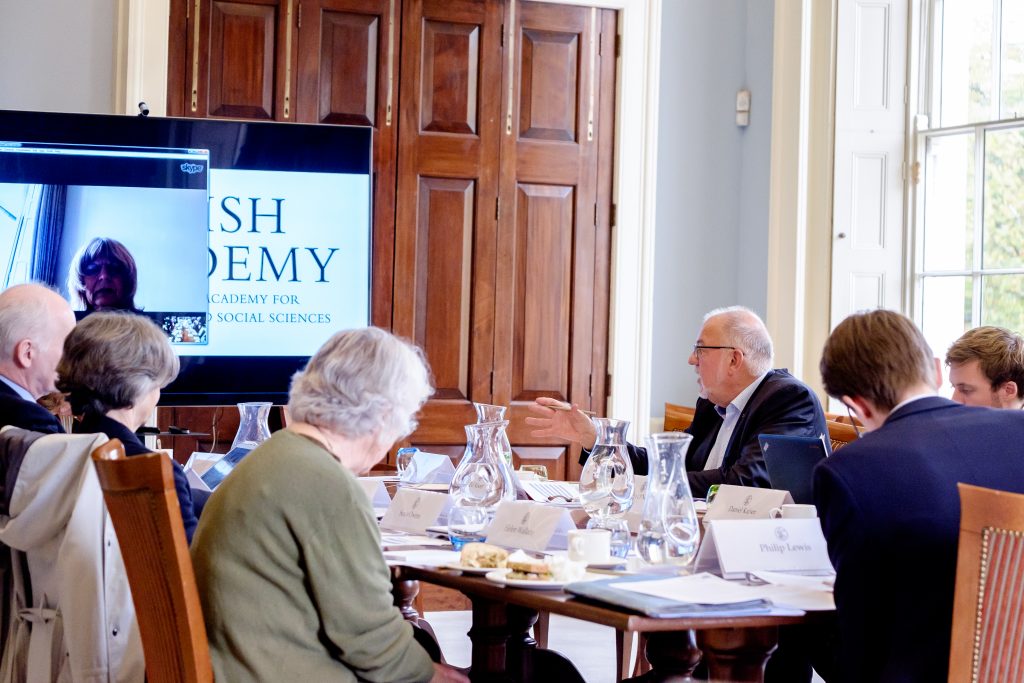
Working Group Members during their kick-off meeting at the British Academy in London on 18 October 2017. Credit: British Academy
The ALLEA Working Group “Truth, Trust & Expertise” held its kick-off meeting on 18th October in London at the British Academy to plan and discuss the group’s objectives and future activities. The expert group aims at exploring the current and past dynamics of public trust in expertise and the challenges it faces in an era of so-called “post-factualism”.
ALLEA Vice President and Co-Chair of the Working Group, Professor Ed Noort, welcomed the members of the group and pointed to the high relevance the topic has for Science and Policy. He thanked his Co-Chair Baroness Onora O’Neill of Bengarve and all the participating members for their engagement with this ALLEA activity, and emphasised the importance of the commitment shown by the hosting British Academy as well as the sending Member Academies.
The expert group aims at exploring the current and past dynamics of public trust in expertise and the challenges it faces in an era of so-called “post-factualism”.
Key aspects discussed by the Working Group were the alleged loss of trust in science, varying disciplinary perspectives on how trustworthy knowledge is produced, the evolving landscapes of communication, and responsibilities and possibilities of public engagement for scientists. The expert group stressed the necessity to overcome strong national biases in the debate and hence develop truly European and global perspectives. They also called for a (self-)critical examination from various disciplinary perspectives on how knowledge and scientific evidence are developed, communicated and disseminated, and how these processes influence public trust in such evidence.
Thematic workshops
The Working Group decided to organise a number of thematic workshops and a final public event during the upcoming months. It was further agreed to work on the programme of the scientific symposium accompanying ALLEA’s General Assembly in Sofia in May 2018. One of the objectives is to produce written contributions covering the broad spectrum of the Working Group’s activities.

